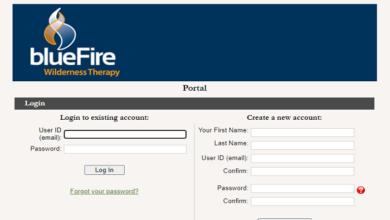The Controversy Surrounding Isaimini and Tamilrockers: Piracy and the Film Industry
Isaimini and Tamilrockers are two notorious names in the world of online piracy, especially when it comes to South Indian cinema. These websites have been a constant source of concern for the film industry, as they provide access to copyrighted content without the consent of the creators. In this blog post, we will delve into the world of Isaimini and Tamilrockers, examining the impact of piracy on the film industry, the legality of these websites, and the measures being taken to combat this ongoing issue.
Isaimini and Tamilrockers: A Brief Overview
Isaimini and Tamilrockers are websites that have made a name for themselves by offering a vast catalog of Tamil and other South Indian language films, along with movies from various other Indian and international film industries, for free download. These websites have operated in a legal gray area for years, with many governments, including the Indian government, attempting to block them. However, they continue to resurface under different domain names, making it challenging to permanently shut them down.
The Impact of Piracy on the Film Industry
Piracy, as perpetuated by websites like Isaimini and Tamilrockers, has significant negative consequences for the film industry. Here are some of the key ways in which piracy affects the industry:
a. Revenue Loss: Film producers, distributors, and creators suffer substantial financial losses due to piracy. When movies are leaked online, potential audiences can watch them for free, leading to reduced box office collections.
b. Erosion of Intellectual Property: Piracy infringes on the intellectual property rights of filmmakers, writers, actors, and other creatives. The hard work and talent that go into making a film are undermined when it can be accessed without payment.
c. Stifling Creativity: The fear of piracy can lead to self-censorship and reduced investment in the film industry. If producers anticipate that their movies will be pirated, they may be less inclined to take creative risks or fund ambitious projects.
Legality and Ethics of Isaimini and Tamilrockers
The legality of websites like Isaimini and Tamilrockers is a contentious issue. While they undoubtedly engage in copyright infringement by making unauthorized copies of films available for download, the complex legal landscape and technical challenges make it difficult to take them down.
a. Copyright Infringement: Piracy websites like Isaimini and Tamilrockers are guilty of copyright infringement. They distribute copyrighted content without the permission of the copyright owners, which is a violation of intellectual property laws.
b. Legal Challenges: While the activities of these websites are illegal, enforcing copyright laws against them is a formidable challenge. They often operate from remote locations, employ advanced technology to evade detection, and frequently change domain names.
c. Ethical Concerns: Besides the legal issues, there are also ethical concerns associated with piracy. It’s important to consider the impact on the livelihoods of individuals working in the film industry and the potential consequences for the future of cinema if piracy continues to thrive.
Efforts to Combat Piracy
Various stakeholders, including governments, industry associations, and law enforcement agencies, have taken steps to combat online piracy. Some of the measures include:
a. Domain Blocking: Governments have blocked access to piracy websites by ordering Internet service providers to restrict access to these domains. However, as mentioned earlier, the websites frequently reemerge with new domain names.
b. Legal Action: Copyright owners and industry associations often file lawsuits against piracy websites and their operators. Successful legal actions can lead to the takedown of the websites and penalties for those responsible.
c. Public Awareness: Creating awareness among the public about the harmful effects of piracy and the importance of supporting the film industry through legal means is crucial. Campaigns and initiatives have been launched to educate people about the consequences of piracy.
Alternatives to Piracy
While piracy might offer free access to movies, it comes with numerous downsides. There are legal and ethical alternatives to enjoy films without supporting piracy:
a. Streaming Services: Many streaming services offer a vast library of movies and TV shows for a reasonable subscription fee. These platforms, like Netflix, Amazon Prime Video, and Disney+, provide access to a wide range of content legally.
b. Theatrical Experience: Watching a movie in a theater not only supports the film industry but also offers an immersive experience that can’t be replicated at home.
c. Digital Rentals and Purchases: Movies can often be rented or purchased digitally through legitimate platforms like Google Play Movies, Apple iTunes, and others. This provides a legal way to enjoy the latest releases.
Conclusion
Isaimini and Tamilrockers are just two examples of the ongoing battle against online piracy. The film industry continues to grapple with the challenges posed by these websites, which undermine the hard work and creativity of countless individuals. While legal and technological measures are being taken to combat piracy, it remains a persistent problem. It is essential for individuals to make ethical choices and support the film industry through legal means, ensuring that it can continue to thrive and entertain audiences around the world. By doing so, we can help protect the art of cinema and the livelihoods of those who create it.




